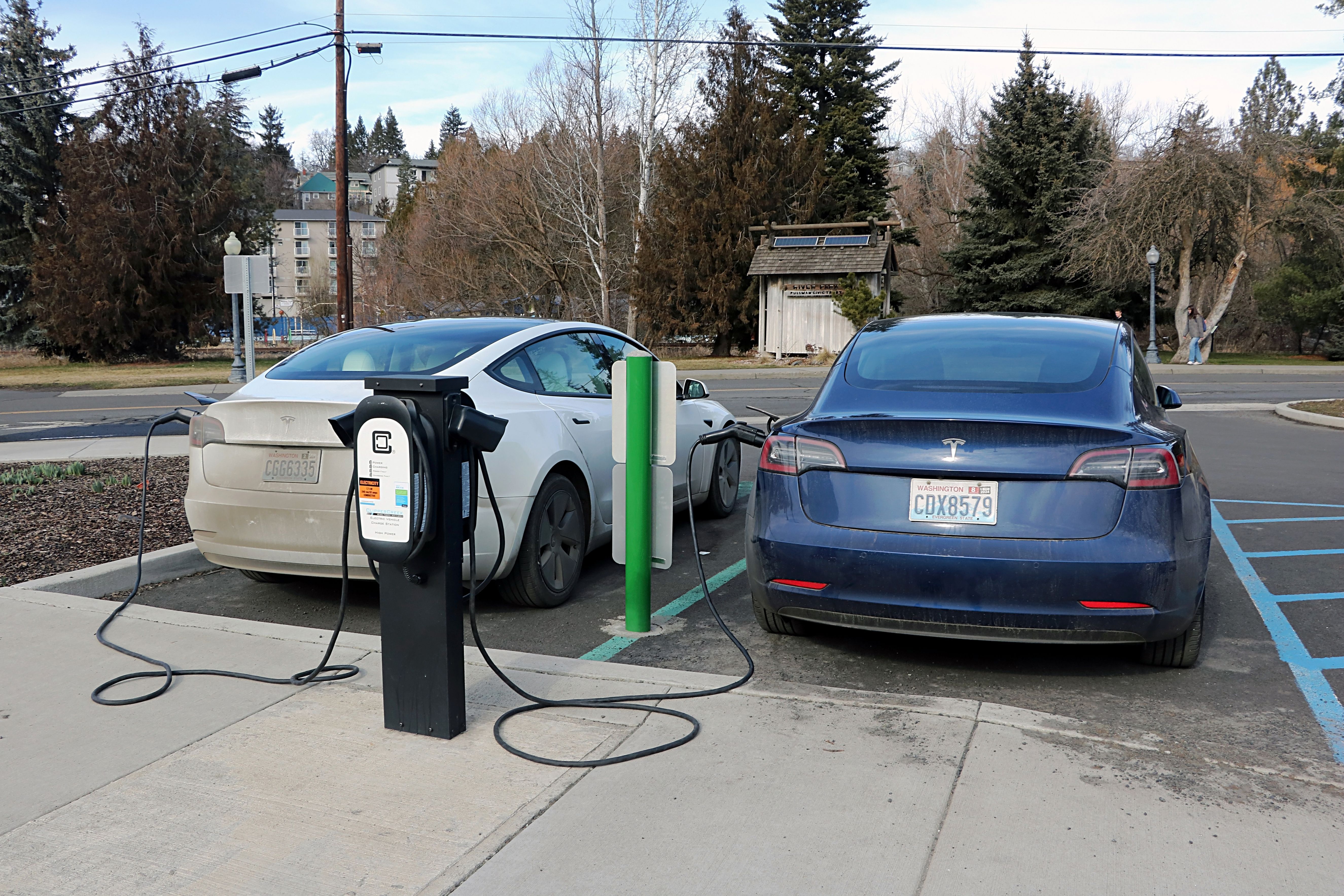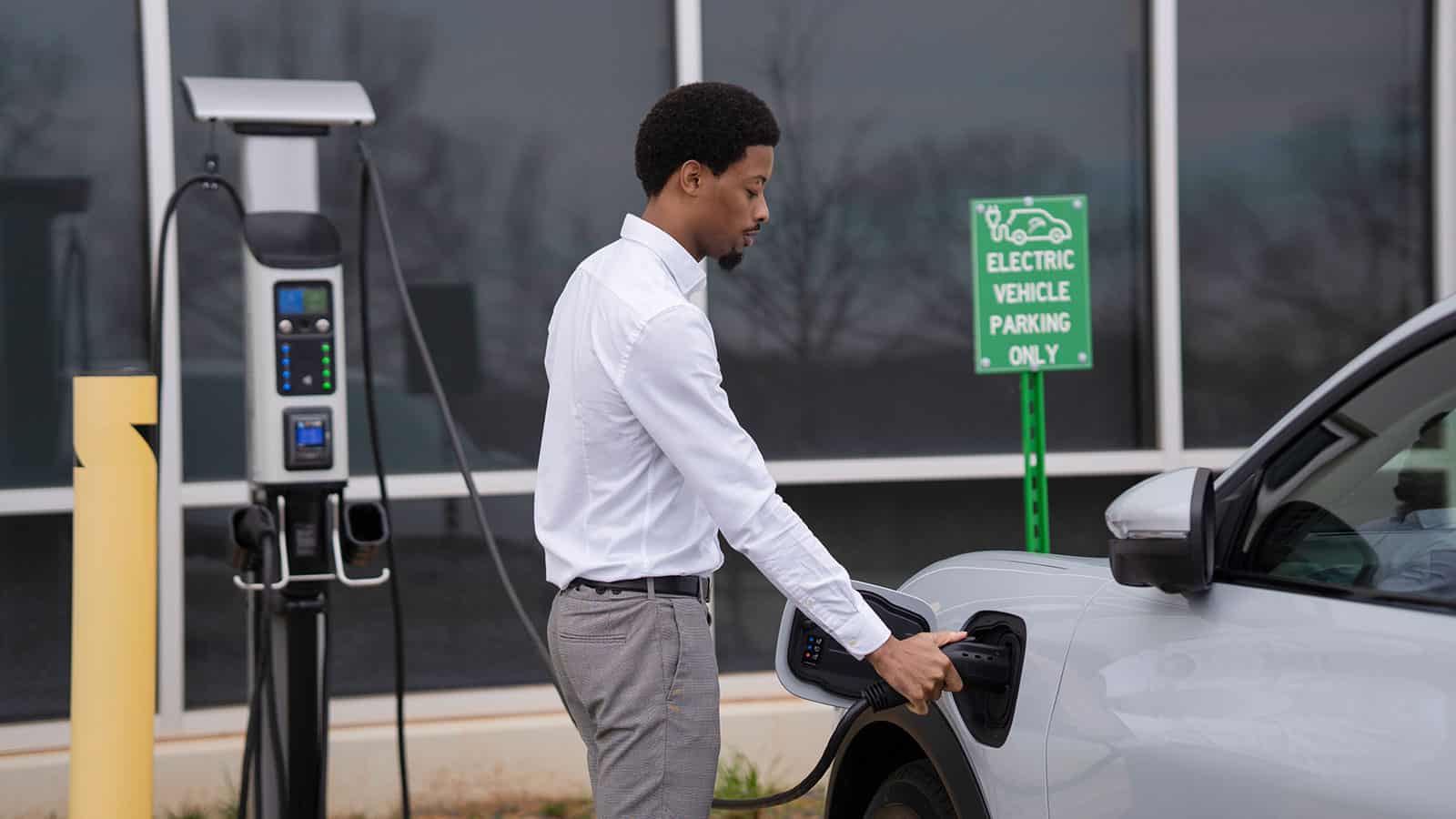Expert Opinions and Market Insights When You Buy EV Charging news
Expert Opinions and Market Insights When You Buy EV Charging news
Blog Article
Top EV Charging Information: Key Updates on Facilities and Technology

Current Innovations in Fast-Charging Technology

In addition, developments in battery modern technology, including improved thermal monitoring systems and greater energy thickness batteries, complement fast-charging capabilities. These advancements minimize the risk of battery deterioration throughout rapid charging, guaranteeing long life and efficiency for EV owners.
Furthermore, the assimilation of clever charging services is improving customer experience, enabling real-time monitoring and dynamic prices versions. EV Charging news. This adaptability allows chauffeurs to enhance billing costs and times based on grid demand
As automakers remain to buy fast-charging networks, the cooperation in between industry stakeholders is important. Collaborations in between billing terminal carriers and auto manufacturers are leading the way for comprehensive protection, eventually promoting a much more robust EV community. These developments are critical in supporting the transition to sustainable transport.
Federal Government Campaigns for Billing Growth
Government initiatives play a crucial role in the expansion of electrical lorry (EV) billing facilities, helping with the transition to sustainable transport. Different federal and state programs are being implemented to boost billing availability, decrease the financial worry on customers, and promote the adoption of electrical cars.
Notably, the united state federal government has allocated substantial funding through the Framework Investment and Jobs Act, which earmarks $7.5 billion for EV billing network development throughout the nation. This funding is intended at deploying hundreds of new billing stations, particularly in underserved locations, thereby resolving variety anxiousness among potential EV purchasers.
Additionally, countless states are enacting regulation to improve the allowing procedure for charging station setups, which is important for increasing release. Incentives such as tax obligation credit reports and rebates for both customers and businesses are likewise being presented to motivate the installment of charging facilities.
In addition, public-private partnerships are significantly becoming a focus, leveraging exclusive financial investment to match federal government financing. These initiatives highlight a joint approach vital for constructing a extensive and effective EV charging network, eventually adding to a greener and even more sustainable future.
Innovative Battery Solutions Enhancing Effectiveness
Reinventing the landscape of electric car (EV) innovation, cutting-edge battery remedies are significantly improving effectiveness and efficiency. Developments in battery chemistry, specifically with lithium-sulfur and solid-state batteries, are leading to increased energy density, which enables for longer varieties and faster charging times. These new battery types have the prospective to outshine standard lithium-ion batteries by supplying greater abilities while lowering weight, therefore boosting total lorry performance.
In addition, growths in battery monitoring systems (BMS) are enhancing power usage and extending battery lifespan. Intelligent formulas check battery wellness and performance, allowing real-time adjustments to billing and releasing procedures. This not only enhances the performance of the battery yet likewise guarantees a more lasting and reputable energy resource for EVs.
Moreover, the combination of recycling modern technologies is addressing the environmental impact of battery manufacturing and disposal. Technologies in second-life applications for EV batteries are facilitating their use in power storage space systems, adding to my link a circular economic situation.
As these ingenious battery services proceed to advance, they guarantee to transform the EV market, making electrical cars more obtainable and attractive to a broader target market while supporting worldwide sustainability goals.

Partnership Between Automakers and Billing Networks
Identifying the crucial need for a robust charging infrastructure, automakers are increasingly collaborating with charging network service providers to improve the EV possession experience (EV Charging news). These collaborations This Site aim to produce a seamless charging ecosystem that benefits customers and sustains the shift to electric cars
Major automotive brand names are signing up with forces with recognized charging networks to expand their billing terminal protection, guaranteeing drivers have accessibility to reliable and hassle-free billing options. Collaborations with networks like ChargePoint and Electrify America enable automakers to incorporate charging remedies directly right into their automobiles' navigation systems, assisting users to the local stations and providing real-time accessibility updates.
Additionally, these cooperations typically result in the advancement of fast-charging technologies that substantially reduce the moment needed to charge an EV. By merging resources and expertise, automakers and billing networks can innovate quicker, developing services that fulfill the growing demand for electrical mobility.
In enhancement, joint campaigns may likewise bring about more standard billing methods, which can reduce customer complication and promote wider EV fostering. On the whole, these tactical partnerships are crucial in building a straightforward and reliable charging facilities that fulfills the demands of an expanding electric vehicle market.
Difficulties Dealing With EV Billing Framework
As the electrical vehicle market continues to grow, a number of challenges are surfacing that hinder the development of a thorough charging facilities. One of the key obstacles is the not enough variety of billing terminals, specifically in underserved and country metropolitan locations. This void creates array stress and anxiety among possible EV purchasers, hindering them from making the button.
Additionally, the find here lack of standardization in billing innovation complicates the framework landscape. Variations in plug types and charging speeds can produce confusion for customers and raise operational intricacies for charging network operators. Additionally, the combination of charging terminals into existing electric grids presents considerable obstacles. Many regions encounter ability limitations, calling for significant investments in grid upgrades to accommodate boosted demand.
One more pushing concern is the high cost connected with the installment and maintenance of billing terminals, which can be an obstacle for both private companies and public entities. Lastly, governing hurdles and zoning constraints can delay the release of charging facilities, impeding progression in broadening essential solutions. Addressing these difficulties will be critical for promoting a robust EV community that supports the transition to lasting transport.
Final Thought
To conclude, the ongoing advancements in EV charging technology, supported by significant government campaigns and ingenious battery options, are important for the development and effectiveness of electric vehicle framework. Cooperations between car manufacturers and charging service providers better improve station protection, resolving the growing need for available charging options. Despite obstacles that continue within the EV charging landscape, these advancements represent a positive trajectory in the direction of a much more reliable and sustainable electric vehicle ecological community.
Developments in billing infrastructure have actually led to the advancement of ultra-fast chargers capable of supplying up to 350 kW of power, considerably minimizing charging times. Variations in plug types and billing speeds can develop complication for customers and boost functional complexities for billing network operators.In final thought, the recurring developments in EV billing modern technology, sustained by substantial government initiatives and ingenious battery options, are crucial for the growth and efficiency of electrical lorry infrastructure. Partnerships between car manufacturers and charging suppliers even more enhance station coverage, attending to the expanding need for obtainable charging alternatives. In spite of challenges that continue within the EV charging landscape, these advancements indicate a positive trajectory towards an extra lasting and efficient electrical car ecosystem.
Report this page